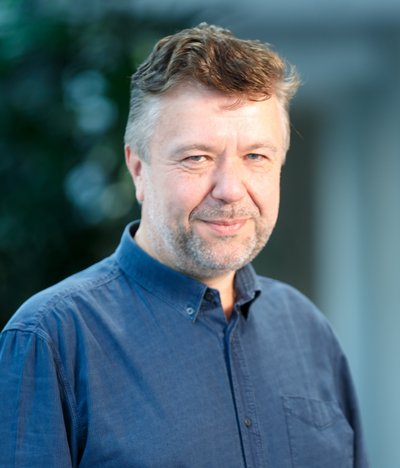Alexey Lyulin
Department / Institute

RESEARCH PROFILE
Prof. dr Alexey Lyulin is an Associate Professor at the Soft Matter and Biological Physics research group of Eindhoven University of Technology and parttime Professor at University of Twente. The emphasis in his research is on atomic-scale modeling of polymers, including glasses, polymer nanocomposites and thin polymer films, for new energy applications. But the main focus is - of course - on polymer dynamics and mechanics.
The fundamental insight generated by the multiscale computer simulations of Lyulin and his co-workers will help in developing new materials with improved ultimate properties. They apply their multi-scale computational approach for the study of
- Glass transition and mechanical properties of amorphous polymers in a bulk and in thin films;
- Stability and toxicity of complexes of charged dendrimers and hyperbranched polymers with applications in linear polyelectrolytes and drugs for biomedical applications;
- Non-newtonian rheology of linear and hyperbranched polymers in hydrodynamic flows; and
- Microstructure and macromechanics of polymer nanocomposites.
The Lyulin group aims at developing a long-standing research program in Eindhoven and Twente for multi-scale computer simulations (from macro scale to nanoscale, in time and space) of polymer dynamics and mechanics.
By performing multiscale simulations I want to bring physical reality to the real-life phenomenology of polymers and solve important practical problems.”
ACADEMIC BACKGROUND
Alexey Lyulin studied Physics at St. Petersburg State University and obtained his PhD from the Institute of Macromolecular Compounds of the Russian Academy of Sciences in 1992. He has held postdoc positions with leading European simulations groups at the Université Libre de Bruxelles, the University of Bristol, the Max-Planck Institute of Polymer Research (Mainz), and the University of Leeds. In April 2000 he was appointed as a senior fellow of the Dutch Polymer Institute (Eindhoven) and obtained a tenure track position at Eindhoven University of Technology (TU/e). In 2016 he was a visiting scientist at Stanford University with the group of Prof. C. Frank (Chemical Engineering department). Since 2019 he is an Associate professor at TU/e. Since june 2023 he is Professor of Multiscale Molecular Dynamics at EEMCS and S&T faculties of University of Twente.
Key Publications
-
A. Lyulin,N.K. Balabaev,A.R.C. Baljon,G. Mendoza,C.W. Frank,D.Y. Yoon
Interfacial and topological effects on the glass transition in free-standing polystyrene films
Journal of Chemical Physics (2017) -
J.L. Barrat,J. Baschnagel,A.V. Lyulin
Molecular dynamics simulations of glassy polymers
Soft Matter (2010) -
A.V. Lyulin,M.A.J. Michels
Time scales and mechanisms of relaxation in the energy landscape of polymer glass under deformation: direct atomistic modeling
Physical Review Letters (2007) -
Soumyadipta Sengupta,Alexey V. Lyulin
Molecular dynamics simulations of substrate hydrophilicity and confinement effects in capped nafion films
Journal of Physical Chemistry B (2018) -
A.D. Glova,S.G. Falkovich,D.I. Dmitrienko,A.V. Lyulin,S.V. Larin,V.M. Nazarychev,M. Karttunen,S.V. Lyulin
Scale-dependent miscibility of polylactide and polyhydroxybutyrate
Macromolecules (2018)
Current Educational Activities
Ancillary Activities
No ancillary activities